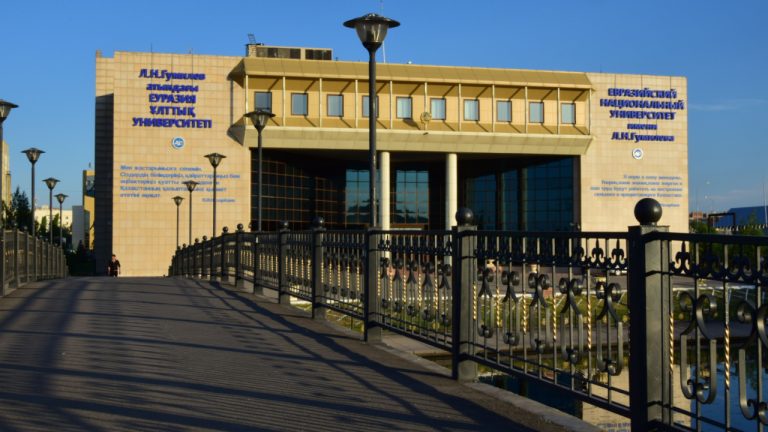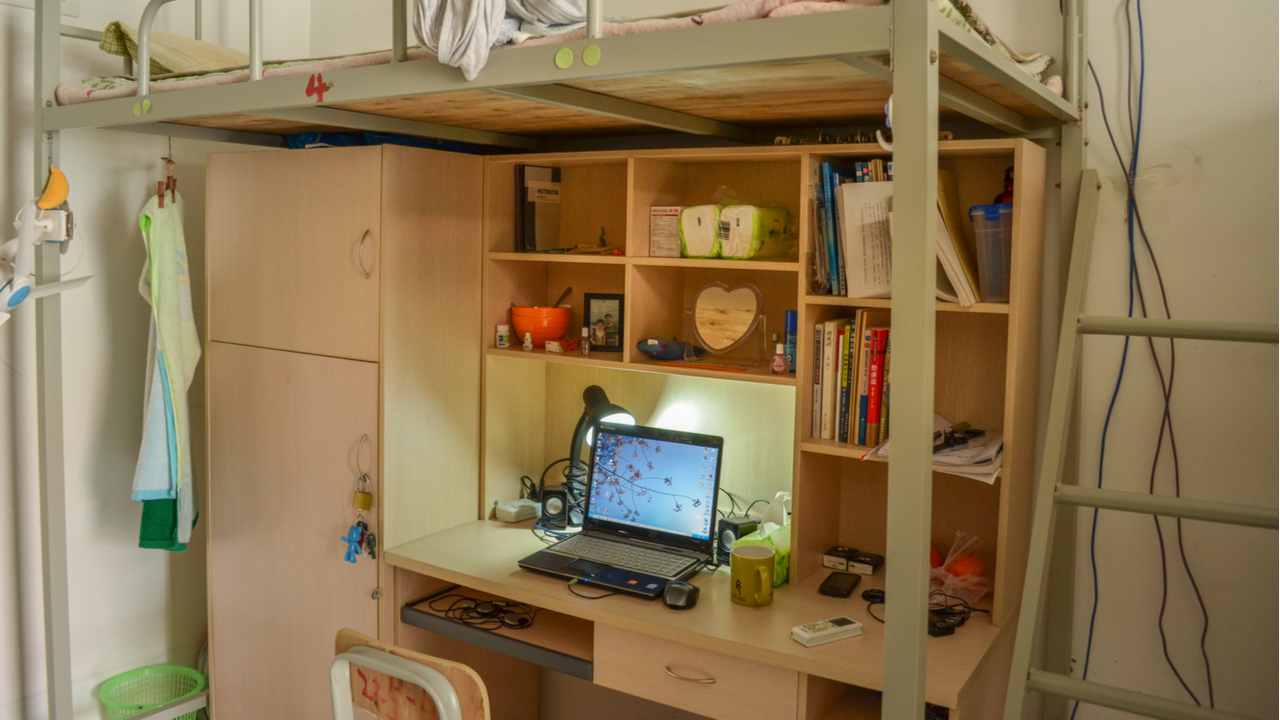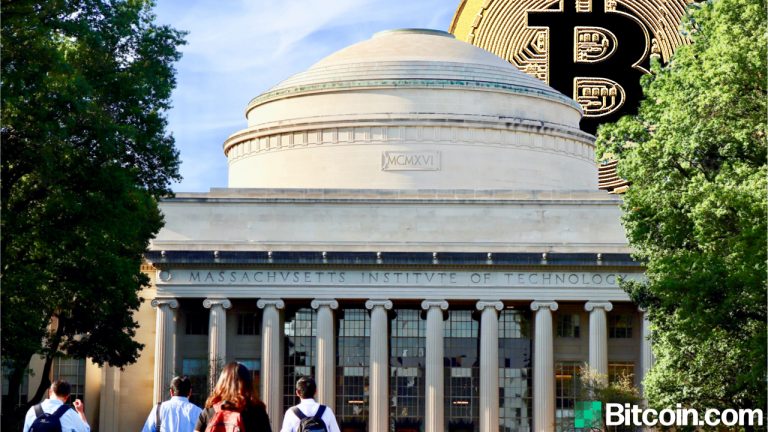
Millions of US schoolkids have fallen victim to a massive data breach after a company that tracks their personal information reportedly failed to take basic precautions. An investigation from cybersecurity firm CrowdStrike determined that PowerSchool – which operates a widely-used Student Information System (SIS) – was breached in what is likely the biggest hack against American […]
The post Tens of Millions of American School Children’s Data Exposed in Largest Breach of Their Personal Info to Date: Report appeared first on The Daily Hodl.

Before hitting a technical roadblock, CUD was seemingly interested in collecting tuition and course fees in cryptocurrencies from both domestic and international students.
Not even 24 hours after the Canadian University Dubai (CUD) announced its partnership with Binance Pay to accept course fees in cryptocurrencies, a technical roadblock watered down the excitement behind the short-lived initiative.
CUD, a private university in Dubai, was seemingly interested in allowing students — both domestic and international — to pay their tuition and course fees in cryptocurrencies. This initiative would have allowed students from varied backgrounds easy access to the Canadian curriculum in Dubai.
Dear CUD Community,
— CUDubai (@CUDUAE) February 10, 2023
For technical reasons, CUD will not be accepting cryptocurrency as a method of payment, until further notice.
We apologize for any inconvenience. pic.twitter.com/b9rERYHR7g
Binance Pay, a payment gateway service launched by crypto exchange Binance, allows businesses to integrate support for cryptocurrency payments. According to the university’s initial announcement, the Binance partnership allowed the institution to “have adapted to the transforming digital payment space.”
#Binance helps bring crypto to @CUDUAE, a leading university in Dubai.
— Binance (@binance) February 9, 2023
Prospective and current students can now pay their fees, including tuition fees, with crypto.
Powered by Binance Pay. pic.twitter.com/bqWuezZVKJ
Binance Pay supports over 200 cryptocurrencies, including Bitcoin (BTC), Dogecoin (DOGE) and Ethereum (ETH), and charges 0 fees per transaction. On Feb. 7, Binance hosted a cryptocurrency workshop and information session for CUD wherein students were taught about blockchain fundamentals, crypto fundamentals, web3 and metaverse.

As shown above, CUD is home to over 1800 domestic and international students — enrolled in one of the 25 undergraduate and six graduate programs — who pay a yearly tuition fee of $18,000.
Canadian University Dubai has not yet responded to Cointelegraph’s request for comment.
Related: Crypto projects respond to privacy coin ban in Dubai
Right when Binance was eyeing a partnership with CUD, Dubai released crypto regulations for virtual asset service providers (VASPs) on Feb. 7. The Virtual Asset Regulatory Authority (VARA) issued its “Full Market Product Regulations,” which include four compulsory rulebooks and activity-specific rulebooks that lay down the rules for operating VASPs.
⚠️Dubai News
— Irina ₿. Heaver (@IrinaHeaver) February 7, 2023
Dubai's Vurtual Assets and Regulatory Authority issued the long-awaited Full Market Regulations for Vurtual Assets Services Providers (VASPs).
“Regulatory certainty is very good for business. It is good for consumers, investors and for the Emirate of Dubai. The regulations are long-awaited and mostly welcomed,” said Irina Heaver, a crypto and blockchain lawyer based in the United Arab Emirates, speaking to Cointelegraph.
 Cryptocurrency exchange Binance is behind an initiative to qualify university students in Kazakhstan to work in the industry. Under an agreement with the government, the blockchain course will be added to the curricula of higher education institutions across the country. Binance Exchange to Help Teach Blockchain at Kazakhstan’s Universities The world’s largest crypto exchange, Binance, […]
Cryptocurrency exchange Binance is behind an initiative to qualify university students in Kazakhstan to work in the industry. Under an agreement with the government, the blockchain course will be added to the curricula of higher education institutions across the country. Binance Exchange to Help Teach Blockchain at Kazakhstan’s Universities The world’s largest crypto exchange, Binance, […]
Government data showed that 244,940 Japanese elementary and junior high school students were absent for at least 30 days in FY 2021.
The Japanese city of Toda, Saitama, adopted a metaverse-schooling service to encourage students — especially those staying far away from school — to attend their classes.
The metaverse schooling service opted for by the city of Toda allows students to explore the campus and study in virtual classrooms. However, the students must get approval from respective school principals for attendance via metaverse schooling, confirms local media NHK.
Government data showed that 244,940 Japanese elementary and junior high school students were absent for at least 30 days in FY 2021. NHK's report highlighted a fifth grader's interest in chatting online instead of attending school in person. While the child has not physically attended school in over two years, they shared an interest in meeting up with friends to play outdoor games, such as tag.
While ongoing efforts to improve school attendance remain a challenge, Japanese officials are placing their bets on metaverse schooling to help students connect with the people around them.
Sugimori Masayuki, the head of Toda’s education center, hopes to see metaverse students grow up and eventually live independently in society.
Related: Japan’s International Payments System will test plastic cards for CBDC
The city of Fukuoka announced a collaboration with Astar Japan Labs as it strives to become the Web3 hub of Japan.
The mayor of Fukuoka, Soichiro Takashima, confirmed the city’s aspirations to lead the Web3 drive, as he stated:
“We have to do in the context of Web3 what large companies did for the world when Japan was strong.”
Astar Network founder Sota Watanabe revealed his intentions to “work closely with Fukuoka City to attract more developers and more entrepreneurs.”

By building MetaHKUST, the institution plans to create a learning environment that virtually connects the two campuses — in Hong Kong and Guangzhou.
The Hong Kong University of Science and Technology (HKUST) announced to host the launch party of a virtual reality classroom over the Metaverse on September 1. The launch marks the commencement of HKUST’s plan to promote immersive learning by building a virtual campus in the Metaverse, to be called MetaHKUST.
An academic from the HKUST institution told South China Morning Post that the launch of the mixed reality classroom represents the opening of a new campus in the city of Guangzhou, Hong Kong. Pan Hui, chair professor of computational media and arts at the Guangzhou campus, added that:
“A lot of guests might be overseas and can’t attend [the opening], so we will host it in the metaverse.”
By building MetaHKUST, the institution plans to create a learning environment that virtually connects the two campuses — in Hong Kong and Guangzhou. By virtually connecting the campuses, HKUST hopes to help students overcome geographical constraints when attending classes.
While universities across the globe moved over to services such as Zoom for conducting online classes during the COVID-19 pandemic, Hui believes learning in the Metaverse to be a better option for students as it promotes a greater level of interaction, adding:
“Through virtual reality, you can feel as if you’re there. How you interact with students around you will increase your learning outcome.”
Despite the nascency of the technology, Wang Yang, VP for institutional advancement at HKUST, said the metaverse was “here to stay.”
Related: Marriages and court cases can be held in the Metaverse
Adding to the long list of use cases the Metaverse has to offer, Singapore’s Second Minister for Law Edwin Tong opined on using the budding technology in legal marriage proceedings, court case disputes and government services.
Tong supported his statement by highlighting instances when intimate events such as the solemnization of marriages were being held at the Metaverse, adding:
“It would not be unthinkable that, besides registration of marriages, other government services can soon be accessed online via the Metaverse.”
Tong stated that the addition of such technology would not preclude traditional offline hearings from taking place and rather suggested an “integrated platform” that could invigorate the dispute resolution process. He noted that “there can always be a hybrid element.”
 University students in Russia minting digital currencies in their dormitories risk penalties and even criminal charges, according to a legal expert quoted by local media. The warning comes as Russian authorities are trying to curb crypto mining with cheap energy in residential areas. Mining May Turn Into Risky Undertaking for Russian Students As more and […]
University students in Russia minting digital currencies in their dormitories risk penalties and even criminal charges, according to a legal expert quoted by local media. The warning comes as Russian authorities are trying to curb crypto mining with cheap energy in residential areas. Mining May Turn Into Risky Undertaking for Russian Students As more and […]
Ghozali spent five years clicking selfies in front of his computer, which was later converted into NFTs and uploaded to OpenSea in December 2021.
An Indonesian college student has reportedly become a millionaire by selling nonfungible token (NFT) versions of his selfies on the OpenSea NFT marketplace.
Sultan Gustaf Al Ghozali, a 22-year-old computer science student from Semarang, Indonesia, converted and sold nearly 1,000 selfie images as NFTs. According to Ghozali, he took photos of himself for five years — between the ages of 18 and 22 — as a way to look back on his graduation journey.
Uploading my photo into nft lolhttps://t.co/E3Q4sBmN26#NFT #opensea pic.twitter.com/rD51rdcpzp
— Ghozali_Ghozalu (@Ghozali_Ghozalu) January 10, 2022
Ghozali selfies were taken sitting or standing in front of his computer, which was later converted into NFTs and uploaded to OpenSea in December 2021. The artist set the price for each NFT selfie at $3 without expecting interest from serious buyers. While monetizing his expressionless images, Ghozali said:
“You can do anything like flipping or whatever but please don't abuse my photos or my parents will very disappointed in me. I believe in you guys so please take care of my photos.”
Going against his wildest expectations, Ghozali’s NFT offering blew up as prominent members of Crypto Twitter showed support by purchasing and marketing the offerings.
Ghozali happened...the year of Gozali @Ghozali_Ghozalu pic.twitter.com/HKOw7FZddj
— Arnold Poernomo (@ArnoldPoernomo) January 12, 2022
With the rising popularity, one of Ghozali’s NFT sold for 0.247 Ether (ETH) on Jan 14. worth $806 at the time of purchase, according to AFP. The young entrepreneur also adds a touch of personalization by providing some background information along with the selfies, which adds to the rarity of the NFT.
every #NFT photo I take has a story behind
— Ghozali_Ghozalu (@Ghozali_Ghozalu) January 11, 2022
This photo was taken during the second corona vaccine https://t.co/pZfJKoKuc9
At its peak, Ghozali’s selfie NFTs sold for 0.9 ETH, worth roughly$3,000, according to a Lifestyle Asia report. Ghozali's collection subsequently reached a total trade volume of 317 ether, equivalent to more than $1 million. The young artist also made his first tax payment on the basis of this income through OpenSea.
this is my first tax payment in my life https://t.co/VDa8KYYPGs
— Ghozali_Ghozalu (@Ghozali_Ghozalu) January 14, 2022
Related: NFT sales and blockchain games continue to grow despite the recent market slump: Report
Despite the recent sluggish performance of the overall crypto market, the NFT marketplace and blockchain gaming industry continues to record high transaction volumes.
As Cointelegraph reported, DappRadar data shows that the number of UAW connected to Ethereum NFT DApps grew by 43% since Q3 2021. In addition, the money generated by NFT trading went from $10.7 billion in Q3 2021 to $11.9 billion in the first ten days of 2022.
 Over six years ago, at the Massachusetts Institute of Technology (MIT), a couple of scholars distributed $100 in bitcoin to 3,100 students. According to testimony from a few participants who held the leading crypto asset since then, the students netted 13,000% in profit. MIT Grad Who Made 13,000%: ‘Most of Us Thought It Was a […]
Over six years ago, at the Massachusetts Institute of Technology (MIT), a couple of scholars distributed $100 in bitcoin to 3,100 students. According to testimony from a few participants who held the leading crypto asset since then, the students netted 13,000% in profit. MIT Grad Who Made 13,000%: ‘Most of Us Thought It Was a […]